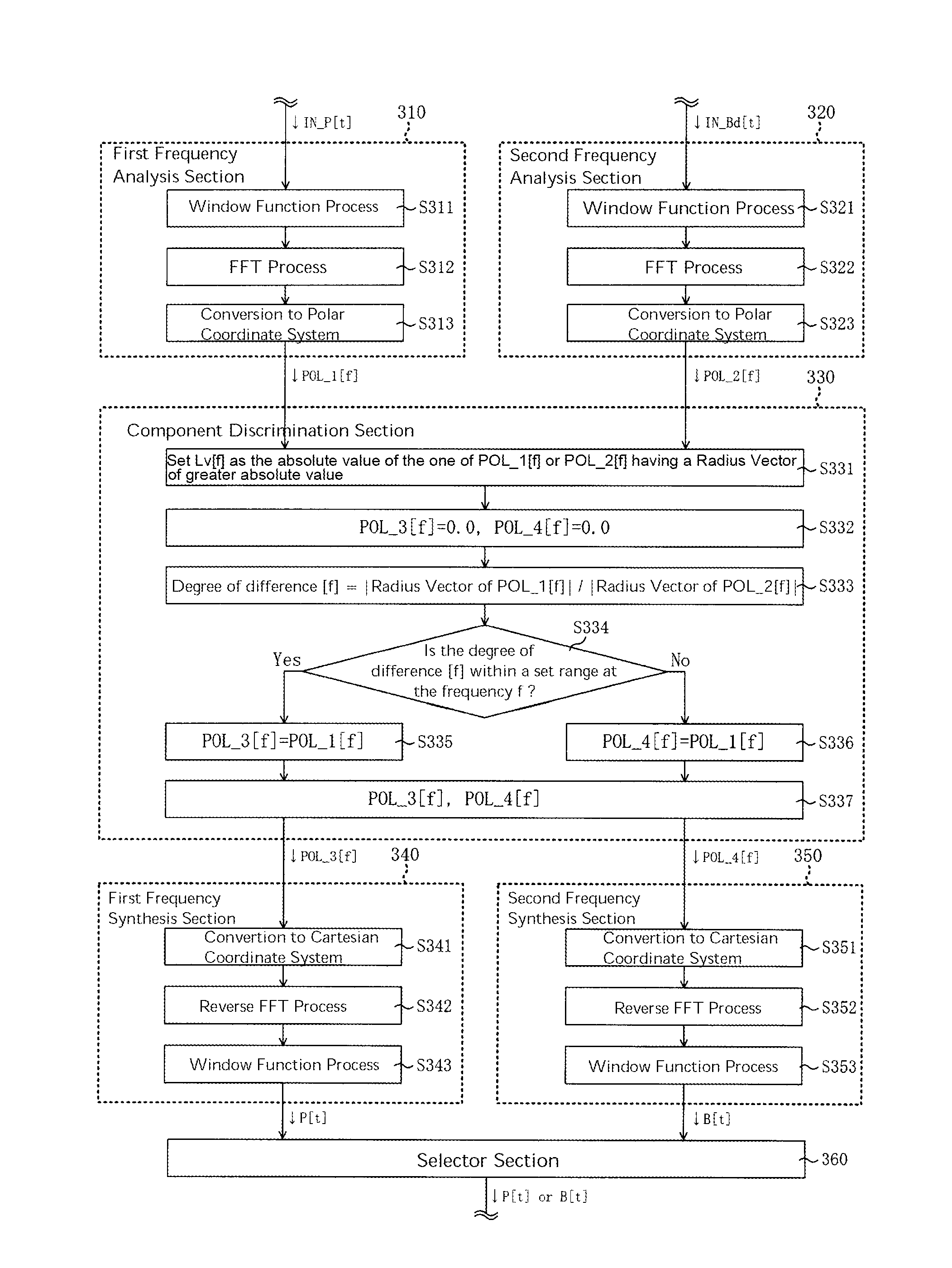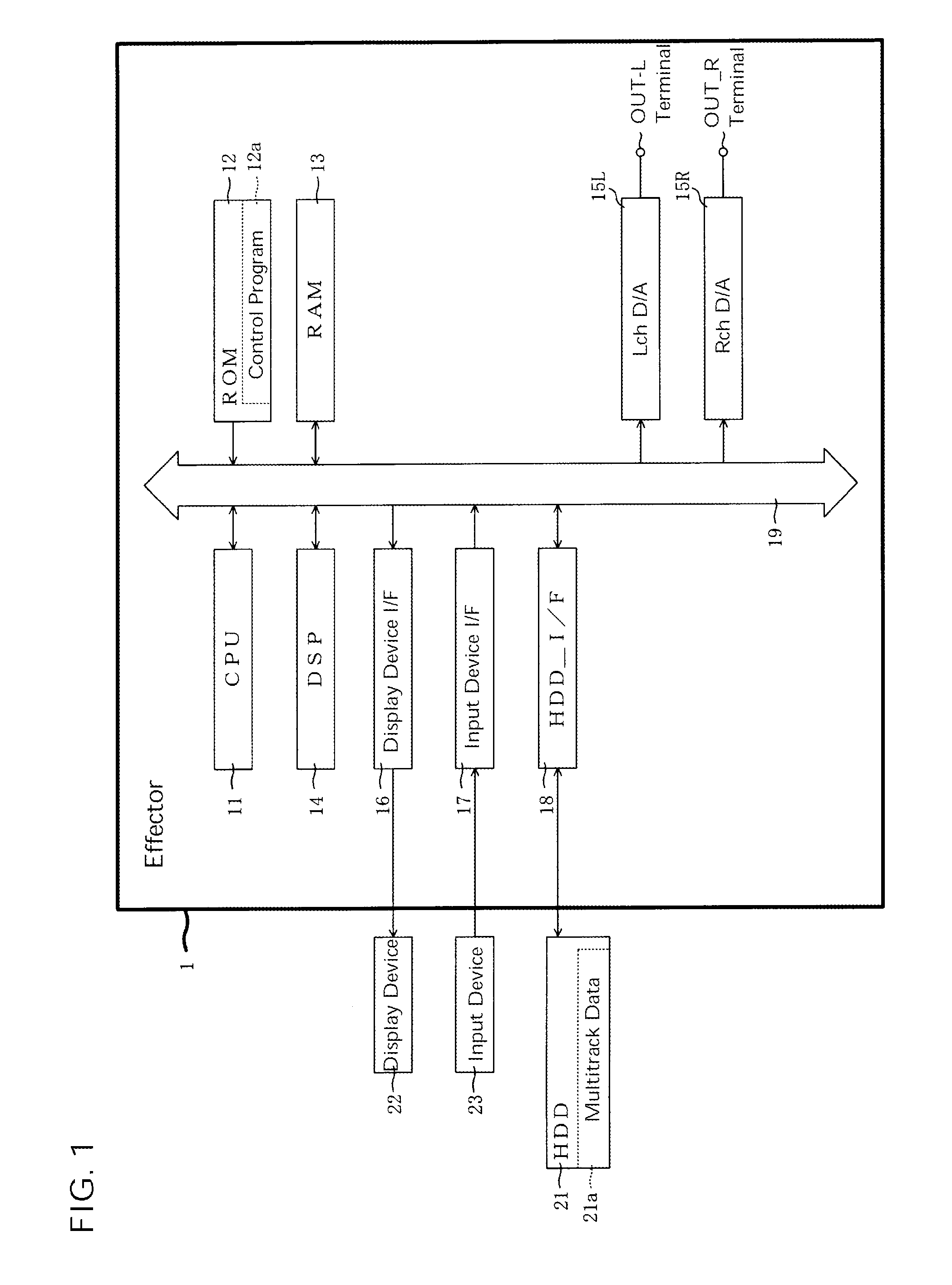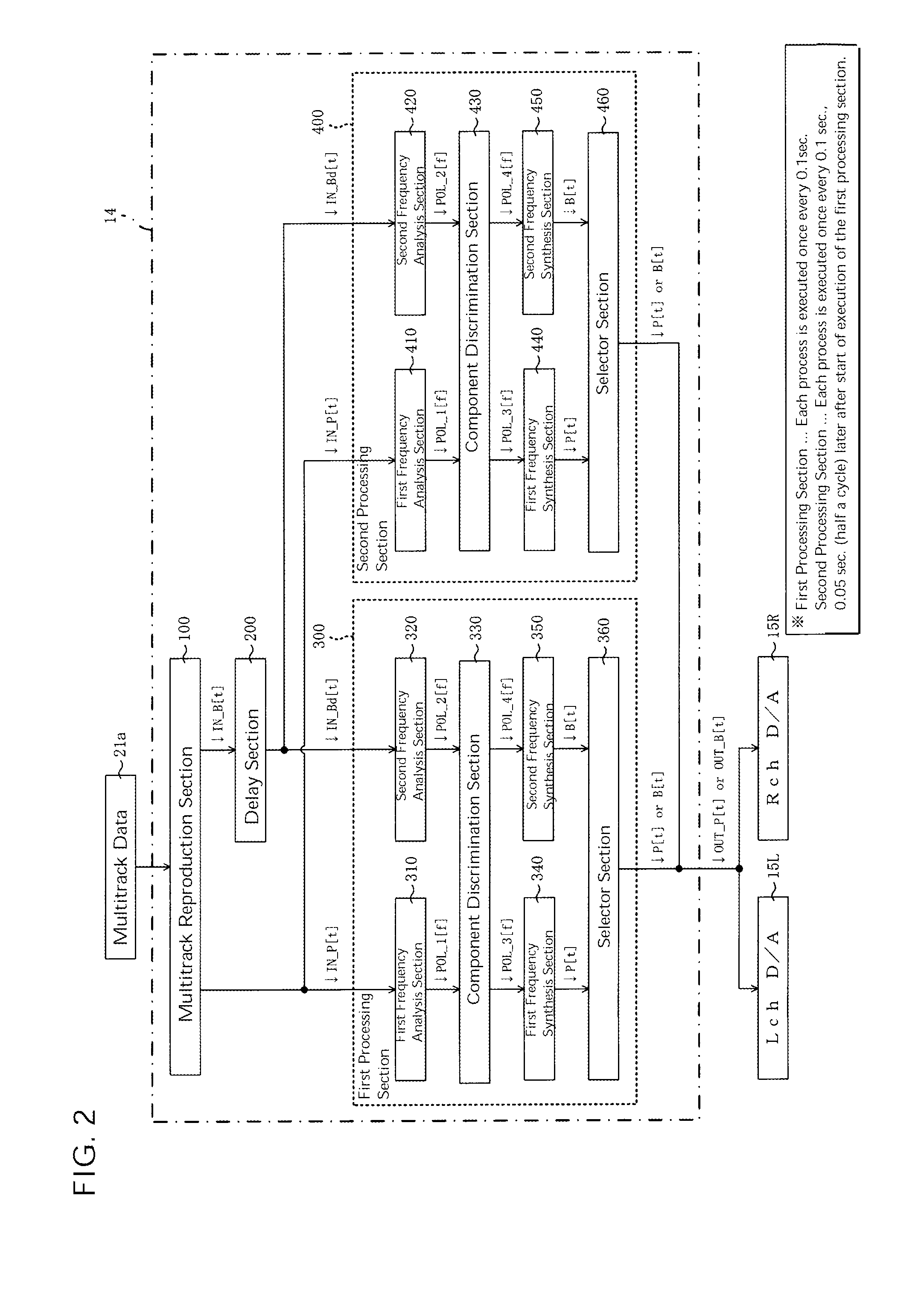Sound signal processing device
a sound signal and processing device technology, applied in the field of sound signal processing devices, can solve the problems of poor sound quality of the reproduced sound, problem of leakage sound, etc., and achieve the effects of accurate simulation, good sound quality, and rapid attenuation of the pseudo signal level of the second sound
- Summary
- Abstract
- Description
- Claims
- Application Information
AI Technical Summary
Benefits of technology
Problems solved by technology
Method used
Image
Examples
second embodiment
[0191]As described above, according to the effector 1 in accordance with the second embodiment, by delaying input signals, early reflection components in reverberant sound included in the input signals can be pseudo-generated. The higher the level ratio, at each frequency f, between signals that are respectively obtained by frequency analysis of the pseudo signals of early reflection components and the input signals, the more the signal components that are not included in the pseudo signals of early reflection components (in other words, the more the signals of the original sound included in the input signals). The pseudo signals of early reflection components are, for example, IN_BL[t], the input signals are, for example, IN_PL[t], and the signals of the original sound included in IN_PL[t] are OrL[t]. In this case, the level ratio at each frequency f can be expressed as |Radius Vector of POL_1L[f]| / |Radius Vector of POL_2L[f]|. Therefore, the level ratios can be used as indexes for...
first embodiment
[0198]In the first embodiment described above, the level coefficients 1-Sn to be used when sound is designated as leakage-removed sound are uniformly set at 1.0 in the multitrack reproduction section 100. However, level coefficients to be used when sound is designated as leakage-removed sound may be differently set for the respective track reproduction sections 101-1 through 101-n, according to mixing states of sounds of musical instruments. For example, when the sound level of the drums is substantially greater than the sound level of other musical instruments, the level coefficient, for the drums, to be used when sound is designated as leakage-removed sound may be set to a value less than 1.0.
[0199]According to an embodiment described above, leakage-removed sound and leakage sound are set for the unit of each of the musical instruments. However, it may be configured such that leakage-removed sound and leakage sound are set for the unit of each of the tracks. Furthermore, the types...
PUM
 Login to View More
Login to View More Abstract
Description
Claims
Application Information
 Login to View More
Login to View More - R&D
- Intellectual Property
- Life Sciences
- Materials
- Tech Scout
- Unparalleled Data Quality
- Higher Quality Content
- 60% Fewer Hallucinations
Browse by: Latest US Patents, China's latest patents, Technical Efficacy Thesaurus, Application Domain, Technology Topic, Popular Technical Reports.
© 2025 PatSnap. All rights reserved.Legal|Privacy policy|Modern Slavery Act Transparency Statement|Sitemap|About US| Contact US: help@patsnap.com



